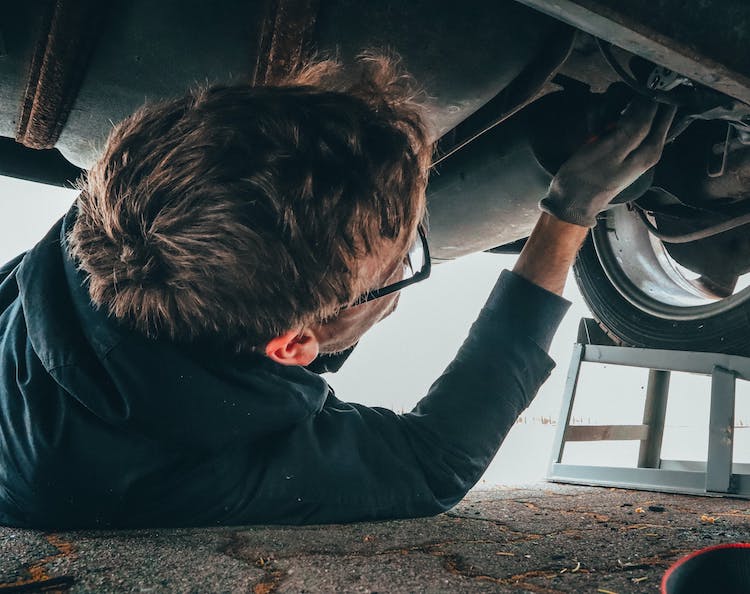Most drivers have probably heard of a catalytic converter – but do you really know what it is and what it does? In this article, we cover some basics about the catalytic converter and ways to keep it operating effectively in your vehicle so you can avoid catalytic converter repair.
What is a catalytic converter?
A catalytic converter is a device that is part of your vehicle’s exhaust system. It is designed to control exhaust emissions by reducing toxic pollutants from your vehicle’s engine that are released into the air. Catalytic converters were introduced into the US auto market in the mid-1970s as more vehicles were being driven and there was increased attention on the effects of vehicle emissions on the environment. All vehicles, with the exception of fully electric cars that operate entirely without any fuel such as gasoline or diesel, have a catalytic converter.
How does a catalytic converter work?
Located within your vehicle’s exhaust system, the catalytic converter works through a catalyst (usually platinum and palladium) that is coated on a ceramic honeycomb or set of beads. When exhaust passes through this structure, the catalyst acts as an agent to convert carbon monoxide into carbon dioxide, hydrocarbons into carbon dioxide and water, and nitrogen oxides into nitrogen and oxygen. This process addresses the three biggest sources of auto pollution.
Without a catalytic converter in fuel engines, exhaust would release poisons into the environment increasing the danger to oxygen breathers and contributing to smog and acid rain issues.
How can you tell if there’s a problem with the catalytic converter?
When your catalytic converter has a problem, there are some signs you can look for that may indicate you need to have it examined by a service professional. The components in a catalytic converter can be very expensive and most of the time require replacement vs. catalytic converter repair.
Keep in mind, some of these signs may indicate other issues with your vehicle and are not strictly associated with catalytic converter problems. These signs may include:
- Your vehicle’s exhaust smells like “rotten eggs”
- Dark smoke is coming out of the tailpipe
- Check engine light comes on
- You notice a decrease in gas mileage
- Your vehicle is misfiring when starting
- Rattling sounds coming from beneath the vehicle
If you notice any of these signs, it’s a good idea to get your vehicle checked out in our auto repair shop located in Ft. Collins, Colorado.
How can you prevent catalytic converter repair?
While you cannot eliminate 100 percent of all problems from arising with your vehicle, there are some proactive steps that you can take to reduce the chances of catalytic converter repair problems.
Preventative maintenance is a good way to avoid the potential for costly replacement of your catalytic converter. For the most part, when your catalytic converter fails it is the product of another component of your vehicle that has not been well-maintained or is in disrepair.
Here are a few ways to keep your catalytic converter running smoothly:
Get Regular Tune Ups: Follow your vehicle owner’s guide or recommendations from your service professional to get regular tune ups, including spark plugs, belts, hoses, wiring, and timing.
Maintain the Cooling System: Maintain your vehicle’s cooling system by keeping engine coolant/antifreeze topped off and ensuring there is not excessive wear/tear on belts and hoses. A failing cooling system can affect your catalytic converter downstream from coolant leaks and carbon buildup.
Address Check Engine Alerts Promptly: If your “check engine” light comes on, make sure to get your vehicle looked at by a service professional. Ignored warnings can become bigger and costlier issues if not addressed in a timely manner.
While seldom thought about or seen, your vehicle’s catalytic converter plays a big role in helping to manage emissions, and ultimately protect our environment. If you feel your vehicle needs catalytic converter repaid, contact us today to schedule a service appointment and a full inspection of your vehicle.

